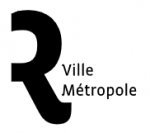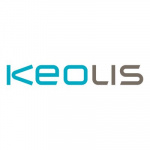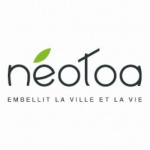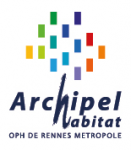Geothermics in the metro to supply the town
Project sponsor

Domaines d'application
Geothermal energy
Production of renewable energies
Energy management system
SMILE's involvement in this project
This project, implemented as part of the construction work on line B of Rennes city’s driverless metro, combines several technology building blocks:
• Innovative technology for recovering ground heat through geothermics on the civil engineering structures of the 4 stations of line B in Rennes city, to supply the buildings above these metro stations (up to 80% of their heating requirements)
• Reduction of fossil fuel energy consumption (gas and/or electric) and support for the electricity network
• Educational component on energy efficiency among the residents of future dwellings
• Monitoring of energy performance with integration and monitoring of consumption, impact analyses of the different electric or gas heat pump technologies on the electricity network, and conditions for national or international replicability.
The innovation is in the design phase, as well as the construction and operating methods.
This test could lead to multidisciplinary scientific research on the long-term monitoring of the behaviour of ground geo structure/structures and the energy performance of systems. It also enables the development of an E+C- certification process on some of the buildings involved.
Line B of the metro also includes some other energy optimisation tests: elimination of heating and air conditioning in carriages, optimisation of the energy consumption of carriages, recovery of traction energy, production of renewable energy.
Project objectives:
- Techniques: Develop and test an innovate technological process for recovering energy based on very-low temperature energy capture, and design and implement an energy performance monitoring process by grouping several different professional and academic activities: building insulation, heating and cooling equipment manufacturers, geothermics and geology, civil engineering and infrastructure.
- Energy related: Implement four 100% renewable heating/cooling networks covering 80% of the heating requirements of the buildings involved, use innovative legal and contractual set-ups to make the heat available to the networks, but also to promote renewable energy with a high potential for development.
- Environmental: Develop a renewable energy solution for heating or cooling, with a low environmental impact and improving the carbon footprint of newly built buildings and the underground system: reduction of CO2 due to reduced energy consumption and replacing fossil fuel sources with geothermal sources.
- User involvement: The energy monitoring process implemented by the town and KEOLIS may enable building operators to develop a process educating building occupants on the importance of the energy transition and energy efficiency.
- Economic: Study the replicability possibilities for an energy solution for the production of heat or cold, at a low cost, with a level of profitability that is attractive to both users and the producer.
- Industrial & Commercial: Develop innovative processes and know-how in geothermics and civil engineering which can generate development in software solutions (supervision, regulation, data processing, etc. …), energy production machinery (geothermal heat pumps), instrumentation, civil engineering construction processes, simulations of the behaviour of ground and structures, etc. …
Added value of the project:
This project involves defining the integration of a geothermal network between several urban structures (residential buildings and metro stations) across the entire value chain and the stakeholders: engineering, construction methods, legal and contractual framework of contracting authorities and operators.
Beyond the technical, environmental and industrial questions around using a resource and deploying an innovative solution for renewable heat with a high potential for development, the challenge is also in the creation of a business model based on energy exchanges between the users and producers of energy.
Are you interested in this project?
Contact usPartners











